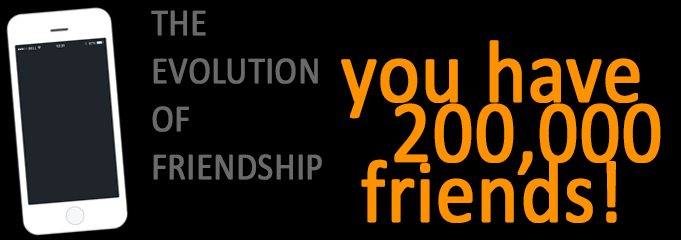
Kick On – Social media and the evolving meaning of friendship
This article was authored by Lauren Thomas,
Online Professional Community Manager at
the Australian Childhood Foundation.
Recently a guy named Charles Stewart in Sydney came up with a way to help people have ‘open house’ parties that are slightly safer than just declaring your party open and throwing it on Facebook Corey Worthington style.
Titled ‘KickOn’, the app seems to be targeted at students, encouraging large parties advertised to the public. Their website says they are also looking to recruit student ambassadors. I’m sure Charles was feeling quite pleased and entrepreneurial about the idea until it hit Australian media recently when in one day the app was covered negatively in both the Sydney Morning Herald and on the Ten Networks ‘The Project’. You can read some of the response to the story on their facebook post here.
Viewers (and panellists) of The Project were quite brutal in their discussion of the app describing it as stupid, pointless and idiotic. Most were unconvinced the app would prevent gate crashers not approved by the host.
Amongst the concerns raised in the SMH article were those around safety and potential breach of liquor laws in serving alcohol to minors, concerns by psychologists over the targeting of a demographic who are less able to consider the consequences of their actions, and concerns by our own CEO about the ongoing dilution of the term ‘friend’ by users of social media
“I think we are creating a community where friendships are not distinguishable from acquaintances. Where we are substituting the power of intimacy and belonging in meaningful relationships with the opportunity to contact and communicate with lots of people.”
There is no doubt that Social media has its benefits for young people. But it can also have unintended consequences. The breakneck pace of social media development also limits our ability to thoughtfully anticipate possible impacts on a generation of children growing up in its ‘reality’.
As we work with children we need to consider what these digital interactions will mean for the kinds of connections that we value as a community and what it will mean for children and young people who need relationships to make them safe and thrive.
Do you see social media impacting the life of the young people and children that you work with? In what ways?
Have you observed young people understanding ‘friendship’ differently?
How can/do you promote ‘real connections’ with peers over hyperreality connections with acquaintances online?
